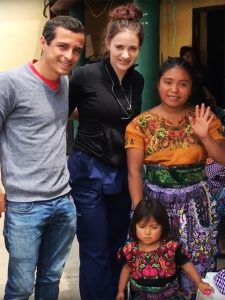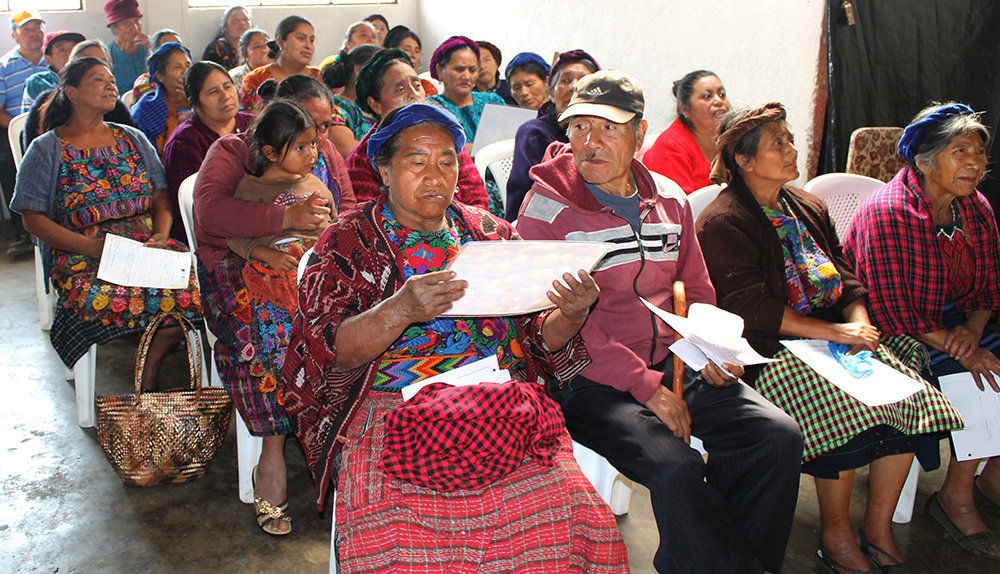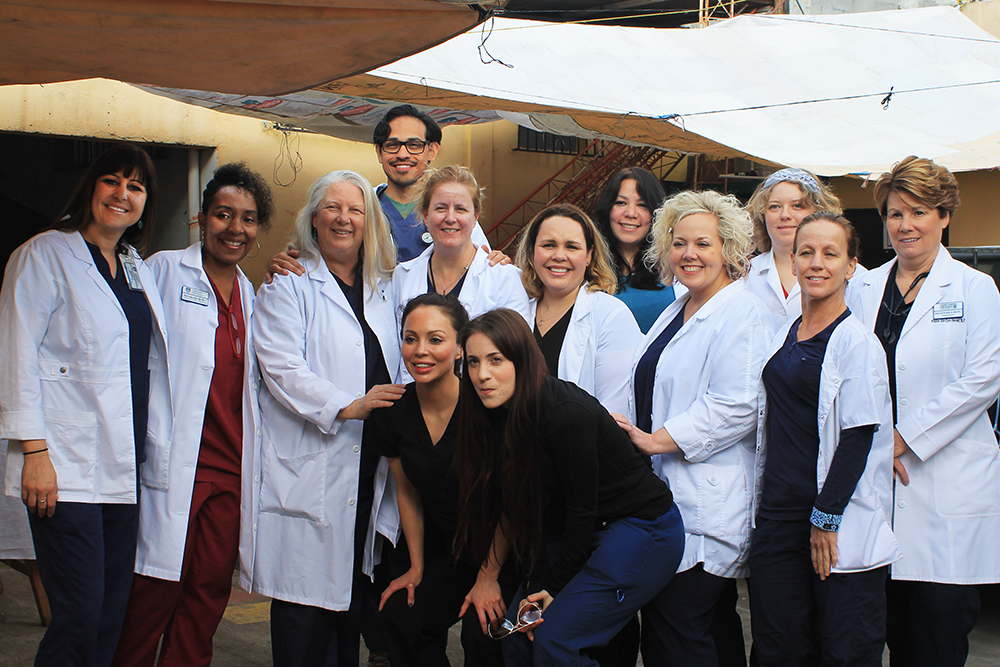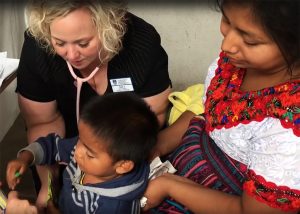By Carly Banks
NAU Communications
Though treatable when detected early, cervical cancer is the leading cause of cancer-related deaths among women in Guatemala—taking the lives of more than 1,400 Mayan women a year. In the United States, 31 percent of those diagnosed with cervical cancer die each year; in Guatemala, that percentage jumps to 48.
So why is a curable cancer killing so many Mayan women?
Dorothy Dunn, assistant professor in the Northern Arizona University School of Nursing, has been interested in Latin America since taking several history classes as an undergrad years ago. With a passion for global outreach, she took it upon herself to come up with a solution to that question.
“Because Guatemala is a low-resource country, women lack the regular checkups and treatment they need, resulting in a very late-stage cancer diagnosis,” Dunn said. “They are then placed on a waiting list of more than 2,000 people in hopes of living long enough to receive radiation treatment—most of whom don’t.”
Through the Center for International Education, Dunn established an international study abroad program that provides NAU nursing students the opportunity to treat Mayan women by partnering with a Guatemalan-based nonprofit organization, Nursing Heart Inc.

Dunn and her cohort of students have been traveling to Santa Maria de Jesus since 2013, where upwards of 500 people flock each year in hopes of receiving treatment.
“The clinic is something the people of this pueblo look forward to,” she said. “Our students are welcome there, and people are excited for them to come each year.”
Of the nine School of Nursing students who traveled to Guatemala with Dunn last month, six will graduate in May. Jennifer Hill is in the Family Nurse Practitioner (FNP) program and will start her clinical rotations this May.
“What attracted me to the FNP program at NAU is its focus on rural, underserved and global populations.” Hill said. “My career goal is to do more work in places like Santa Maria de Jesús. This experience gave me the opportunity to network.”
Focusing on women’s health care, the first three days of the clinic provides Mayan women the opportunity to be screened for cervical cancer, and allows NAU students the opportunity to examine a cervix—some for the first time.
“This project is a two-way street,” Dunn said. “Not only are these women getting the treatment they would otherwise not receive, but our students are getting hands-on experience outside of textbooks and classrooms and helping save lives along the way.”
In addition to the increase of people diagnosed with cervical cancer, Guatemala also has seen an influx of people struggling with obesity, diabetes and heart disease since low-nutrient, high-calorie, high-sugar and high-salt processed foods are all that’s affordable for many of the nation’s poorer families.

Dunn, who has seen these complications first-hand, dedicates the fourth and final day of the clinic to patient education. She hopes this will save on the future cost of treatment by providing preventative measures that Guatemalans can proactively implement into their daily routines.
This year, more than 40 women and several men participated in the patient education class.
“Each year we open up the class for comments and discussion, a woman stood up to tell us that because she was able to implement what she learned in last year’s education classes, she is now off of her hypertension medication, has lost 35 pounds, she feels better, she has more energy and she thanked us for helping save her life,” Dunn recalled. “It was this unsolicited testimonial that just blew me away.”
Stories like this, Dunn said, reiterate the importance of what they do and demonstrate the positive impact NAU continues to have on many lives throughout the world.




